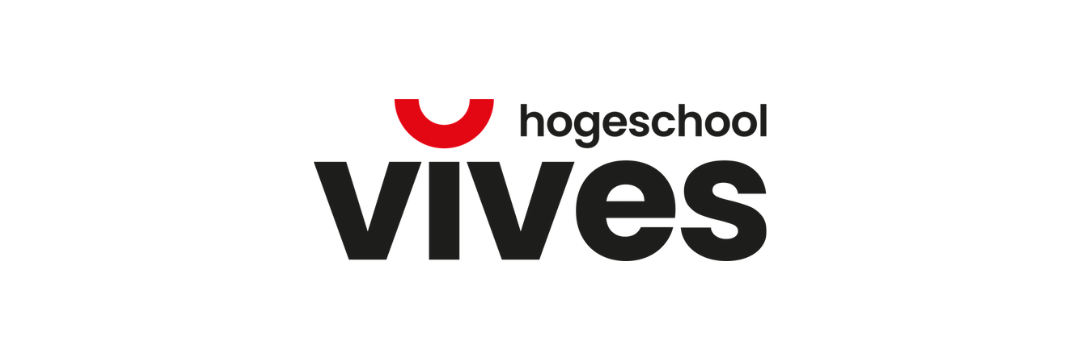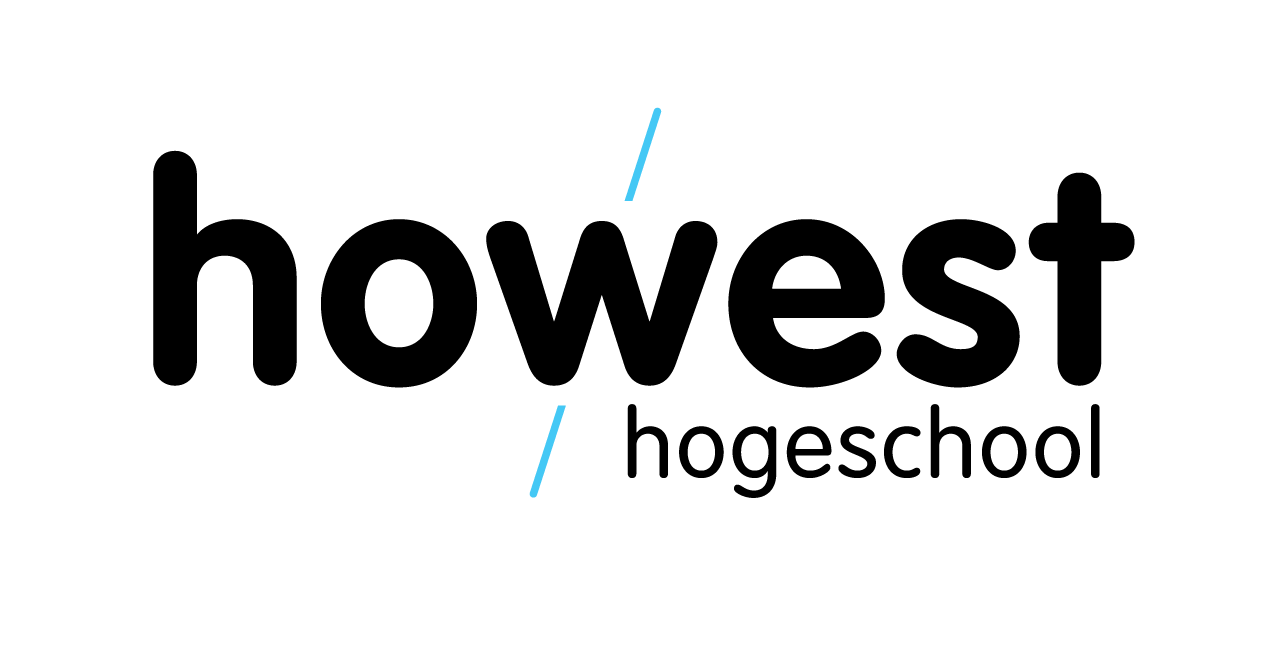Kun je je nog verstoppen voor het nieuws?
Je bent nietsvermoedend aan het scrollen op je smartphone en daar is het: nieuws. Je vroeg er niet om, je wilt eigenlijk het liefst van al met rust gelaten worden. Dat is wat vele jongvolwassenen denken. Kun je je nog wel verstoppen voor het nieuws? Een studente journalistiek van KU Leuven zocht net dat uit.
Jongvolwassenen: wie zijn ze? Wat doen ze? Wat drijft hen?
Het zijn mensen tussen 18 en 35 jaar oud. Wat ze doen is op sociale media scrollen. Wat hen alvast niet drijft: nieuws. En dat is net interessant, want op sociale media krioelt het van nieuwsberichten. Te pas en te onpas steken ze de kop op, zelfs bij wie er niet om vraagt: nieuwsmijders. Daarom onderzocht Sophia Derhore hoe zij toch bereikt worden, hoe dat nieuws eruitziet en wat ze daar dan van vinden. Tien jonge nieuwsmijders hielden een week lang bij wanneer ze nieuws tegenkwamen op sociale media en wat ze daarbij voelden of deden.
Wie niet weg is, krijgt te zien
Allereerst een antwoord op de titel: ja, je kunt je nog verstoppen, maar dat is niet evident. Er was één persoon die geen enkel bericht was tegengekomen, dat kwam doordat hij alles blokkeerde via een app. De nieuwsmijders kwamen gemiddeld drie berichten per dag tegen, ongeacht hoeveel tijd ze spendeerden op sociale media. Nieuws dat mensen per ongeluk tegenkomen wordt incidental news genoemd. Het komt op sociale media het vaakst voor op Facebook. Sociale media die gebruikt worden voor persoonlijke communicatie, zoals Whatsapp, waren minder vaak de verspreider van incidental news. De berichten nemen meestal de vorm aan van een gedeelde link en het minst waren de berichten in de vorm van een video.
Nieuws? Bedankt, maar nee bedankt.
Niet alle nieuwsmijders zijn hetzelfde: je hebt er die het nieuws opzettelijk vermijden, meestal omdat ze het te negatief vinden. En dan zijn er de onopzettelijke nieuwsmijders, zij die niet geïnteresseerd zijn of te weinig tijd hebben. De onopzettelijke nieuwsmijders kwamen vaker nieuws tegen omdat zij ook vaker nieuwsbronnen volgden. Die nieuwsbronnen zijn de voornaamste makers van incidental nieuws.
Toch zien ook enkele nieuwsmijders de positieve kanten ervan in: nieuws op sociale media is leuker en je hebt er meer controle over. “Zo hoef je geen volledig journaal uit te zitten tot het eindelijk over iets gaat dat je interessant vindt. Als het je niet interesseert, scroll je gewoon door,” zei een van de nieuwsmijders. Ze denken ook dat het niet nodig is om het nieuws zelf te volgen, als het echt belangrijk zou zijn dan zou het nieuws hen wel vinden.
Het rapport van incidental news
Ondanks de afkeer van nieuws bleken de nieuwsmijders het meestal te vertrouwen, dat kwam waarschijnlijk doordat de bron vaak een traditionele nieuwsorganisatie is. Ook de rapporten van het nieuws, beoordeeld door de nieuwsmijders, zagen er niet zo slecht uit. Incidental news kreeg een gemiddelde score van 6,23 op tien. De beste leerling van de klas was nieuws over dieren, dat scoorden gemiddeld een 8,14 op tien. De slechtste scoorder was sport, met ongeveer de helft van die punten. Vooral de interesses van de proefpersonen waren van belang bij het geven van een score. Zij bleken meer interesse te hebben in luchtige thema’s dan in politiek of economie. Ook positief nieuws scoorde beter. De berichten met een goede score hadden meer kans om een like of klik te krijgen. Clickbait leek ook te werken, want er werd dubbel zo vaak geklikt op een bericht met een clickbaittitel.
Bibliografie
Aharoni, T., Kligler-Vilenchik, N., & Tenenboim-Weinblatt, K. (2021). “Be Less of a Slave to the News”: A Texto-Material Perspective on News Avoidance among Young Adults. Journalism Studies (London, England), 22(1), 42–59. https://doi.org/10.1080/1461670X.2020.1852885
Becq, J., & De Cock, R. (2017). Nieuwsvermijders; een opkomend profiel in tijden van extreem negatief nieuws? (survey). [masterscriptie] KU Leuven. Faculteit Sociale Wetenschappen.
Boczkowski, P. J., Mitchelstein, E., & Matassi, M. (2018). “News comes across when I’m in a moment of leisure”: Understanding the practices of incidental news consumption on social media. New Media & Society, 20(10), 3523–3539. https://doi.org/10.1177/1461444817750396
Bode, L. (2016). Pruning the news feed: Unfriending and unfollowing political content on social media. Research & Politics, 3(3). https://doi.org/10.1177/2053168016661873
Bolger, N., Davis, A., & Rafaeli, E. (2003). Diary Methods: Capturing Life as it is Lived. Annual Review of Psychology, 54(1), 579–616. https://doi.org/10.1146/annurev.psych.54.101601.145030
Borah, P., Su, Y., Xiao, X., & Lai Lee, D. K. (2022). Incidental news exposure and COVID-19 misperceptions: A moderated-mediation model. Computers in Human Behavior, 129, 107-173. https://doi.org/10.1016/j.chb.2021.107173
Bossio, D. (2021). Journalists on Instagram: Presenting Professional Identity and Role on Imagefocused Social Media. Journalism Practice, ahead-of-print(ahead-of-print), 1–17. https://doi.org/10.1080/17512786.2021.2001359
Broersma, M. (2019). Epilogue: Situating Journalism in the Digital: A plea for studying news flows, users, and materiality. In S. Eldridge II & B. Franklin (Red.), The Routledge Handbook of Developments in Digital Journalism Studies (1st ed., pp. 515-526). Routledge. https://doi.org/10.4324/9781315270449-40
Buneviciene, I., Bunevicius, R., Bagdonas, S., & Bunevicius, A. (2021). COVID-19 media fatigue: predictors of decreasing interest and avoidance of COVID-19–related news. Public Health (London), 196, 124–128. https://doi.org/10.1016/j.puhe.2021.05.024
Daily Star (2023). Madeleine McCann’s parents speak after woman claiming to be her gets DNA results Facebookpost. Facebook.
De Marez, L., Sevenhant, R., Denecker, F., Georges, A., Wuyts, G. & Schuurman, D. (2022).
Imec.digimeter 2022: Digitale trends in Vlaanderen. Imec. Geraadpleegd op 26 mei 2023, van https://www.imec.be/sites/default/files/2023-03/imec_digimeter_2022.pdf
Edgerly, S. (2022). The head and heart of news avoidance: How attitudes about the news media relate to levels of news consumption. Journalism (London, England), 23(9), 1828–1845.https://doi.org/10.1177/14648849211012922
Feezell, J.T. (2018). Agenda Setting through Social Media. The Importance of Incidental News Exposure and Social Filtering in the Digital Era. Political Research Quarterly, 71(2), 482-494. https://doi.org/10.117/1065912917744895
Fitzpatrick, N. (2022). No News is Not Good News: The Implications of News Fatigue and News Avoidance in a Pandemic World. Athens Journal of Mass Media and Communications (online), 8(3), 145–160. https://doi.org/10.30958/ajmmc.8-3-1
Gazet Van Antwerpen (2023). DNA-testen van Poolse vrouw die beweert dat ze Maddie McCann is zijn bekend. Facebookpost. Facebook.
Goyanes, M. (2019). Antecedents of Incidental News Exposure: The Role of Media Preference, Use and Trust. Journalism Practice, 14(6), 714-729. https://doi.org/10.1080/17512786.2019.1631710
Goyanes, M., & Demeter, M. (2022). Beyond positive or negative: Understanding the phenomenology, typologies and impact of incidental news exposure on citizens’ daily lives. New Media & Society, 24(3), 760–777. https://doi.org/10.1177/1461444820967679
Hln.be (2023). Dante Vanzei beschuldigd van racisme aan adres van speler van San Jose, club en MLS stellen onderzoek in Facebookpost. Facebook.
Hong, S. (2012). Online news on Twitter: Newspapers’ social media adoption and their online readership. Information Economics and Policy, 24(1), 69–74. https://doi.org/10.1016/j.infoecopol.2012.01.004
Oeldorf-Hirsch, A. (2018) The Role of Engagement in Learning From Active and Incidental News Exposure on Social Media. Mass Communication and Society, 21(2), 225-247, https://doi.org/10.1080/15205436.2017.1384022
Kormelink, T. G., & Meijer, I. C. (2014). Tailor-Made News: Meeting the demands of news users on mobile and social media. Journalism Studies, 15(5), 632– 641. https://doi.org/10.1080/1461670x.2014.894367
Kumpel, A. S. (2019). The Issue Takes It All?: Incidental news exposure and news engagement on Facebook. Digital Journalism, 7(2), 165–186. https://doi.org/10.1080/21670811.2018.1465831
Mannell, K., & Meese, J. (2022). From Doom-Scrolling to News Avoidance: Limiting News as a Wellbeing Strategy During COVID Lockdown. Journalism Studies (London, England), 23(3), 302–319. https://doi.org/10.1080/1461670X.2021.2021105
Negreira-Rey, M.-C., Vazquez-Herrero, J., & Lopez-Garcfa, X. (2022). Blurring Boundaries Between Journalists and Tiktokers: Journalistic Role Performance on TikTok. Media and Communication (Lisboa), 10(1S1), 146–156. https://doi.org/10.17645/mac.v10i1.4699
Newman, N., Fletcher, R., Robertson, C.T., Eddy, K. & Nielsen, R.K. (2022). Reuters Institute Digital News Report 2022. Reuters Institute for the Study of Journalism. Geraadpleegd op 26 Mei 2023, van https://reutersinstitute.politics.ox.ac.uk/sites/default/files/2022-06/…
Nws.nws.nws. (2023). Na schorsing Lukaku in Italië: jeugdploegen Anderlecht maken gebaar tegen racisme Instagrampost. Instagram.
Palmer, R., Toff, B., & Nielsen, R. K. (2023). Examining Assumptions Around How News Avoidance Gets Defined: The Importance of Overall News Consumption, Intention, and Structural Inequalities. Journalism Studies (London, England), ahead-of-print(ahead-of-print), 1–18. https://doi.org/10.1080/1461670X.2023.2183058
Park, C. S. (2019). Does Too Much News on Social Media Discourage News Seeking? Mediating Role of News Efficacy Between Perceived News Overload and News Avoidance on Social Media. Social Media + Society, 5(3), 205630511987295–. https://doi.org/10.1177/2056305119872956
Park, C.S., & Kaye, B.K. (2020) What’s This? Incidental Exposure to News on Social Media, News-Finds me perception, News Efficacy, and News Consumption. Mass Communication & Society, 23(2), 157-180. https://doi.org/10.1080/15205436.2019.1702216
Pew Research Center (2021). News Consumption Across Social Media in 2021. Geraadpleegd op 19december 2022, van https://www.pewresearch.org/journalism/2021/09/20/news-consumptionacros…
Powers, E. (2017). My News Feed is Filtered?: Awareness of news personalization among college students. Digital journalism, 5(10), 1315– 1335. https://doi.org/10.1080/21670811.2017.1286943
Rajapaksha, P., Farahbakhsh, R., & Crespi, N. (2016). Scrutinizing News Media Cooperation in Facebook and Twitter. IEEE Access, 4, 1-14. https://doi.org/10.1109/ACCESS.2019.2902491
Strauß, N., Huber, B., & Gil de Zúñiga, H. (2020). “Yes, I Saw It - But Didn’t Read It...” A Cross-Country Study, Exploring Relationships between Incidental News Exposure and News Use cross Platforms. Digital Journalism, 8(9), 1181–1205. https://doi.org/10.1080/21670811.2020.1832130
Swart, J. (2023). Tactics of news literacy: How young people access, evaluate, and engage with news on social media. New Media & Society, 25(3), 505–521. https://doi.org/10.1177/14614448211011447
Statbel. (2022). ICT-statistieken bij huishoudens en individuen 2022. ICT-gebruik in huishoudens. Geraadpleegd op 26 mei 2023, van https://statbel.fgov.be/nl/themas/huishoudens/ict-gebruikhuishoudens#fi…
Tamboer, S.L., Kleemans, M., & Daalmans, S. (2022). We are a neeeew generation”: Early adolescents’ views on news and news literacy. Journalism (London, England), 23(4), 806–822. https://doi.org/10.1177/1464884920924527
Toff, B., & Kalogeropoulos, A. (2020). All the news That’s fit to ignore: How the information environment does and does not shape news avoidance. Public Opinion Quarterly, 84(1), 366–390. https://doi.org/10.1093/poq/nfaa016
Turcotte, J., York, C., Irving, J., Scholl, R. M., & Pingree, R. J. (2015). News Recommendations from Social Media Opinion Leaders: Effects on Media Trust and Information Seeking. Journal of Computer-Mediated Communication, 20(5), 520–535. https://doi.org/10.1111/jcc4.12127
Vandenplas, R., Truyens, P., Vis, S., & Picone, I. (2021). Tuning Out the News. A Cross-Media Perspective on News Avoidance Practices of Young News Users in Flanders During the COVID-19 Pandemic. Journalism Studies (London, England), 22(16), 2197–2217. https://doi.org/10.1080/1461670X.2021.1990788
Vrtnws. (2023). Lukaku krijgt veel steun na racisme-incident: “Racisme heeft geen plek in voetbal”.Instagrampost. Instagram.
Yadamsuren, B., & Erdelez, S. (2010). Incidental exposure to online news. Proceedings of the ASIS Annual Meeting, 47(1), 1–8. https://doi.org/10.1002/meet.14504701237
Zhang, X., Akhter, S., Nassani, A. A., & Haffar, M. (2022). Impact of News Overload on Social Media News Curation: Mediating Role of News Avoidance. Frontiers in Psychology, 13, 865246–. https://doi.org/10.3389/fpsyg.2022.865246









